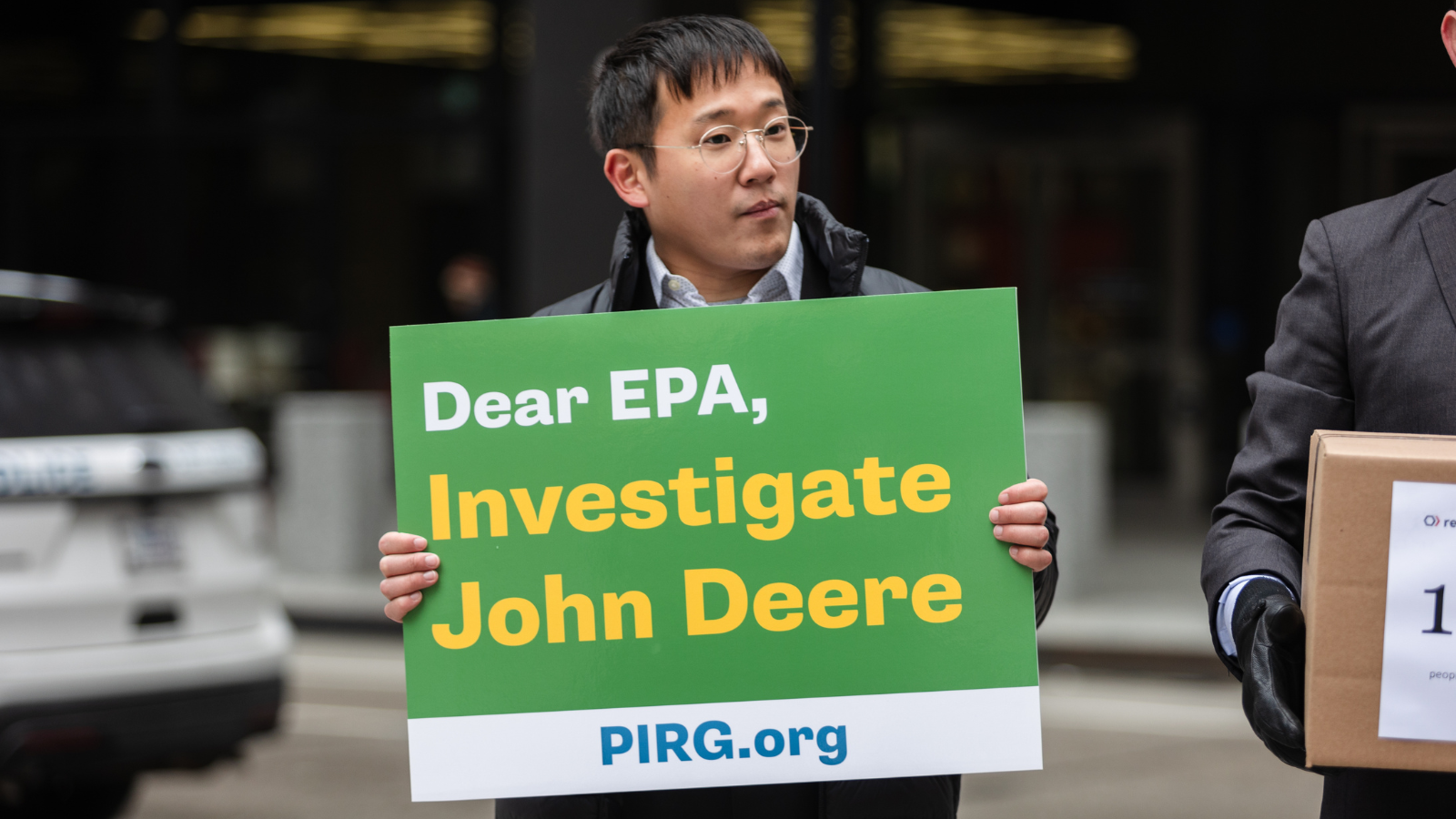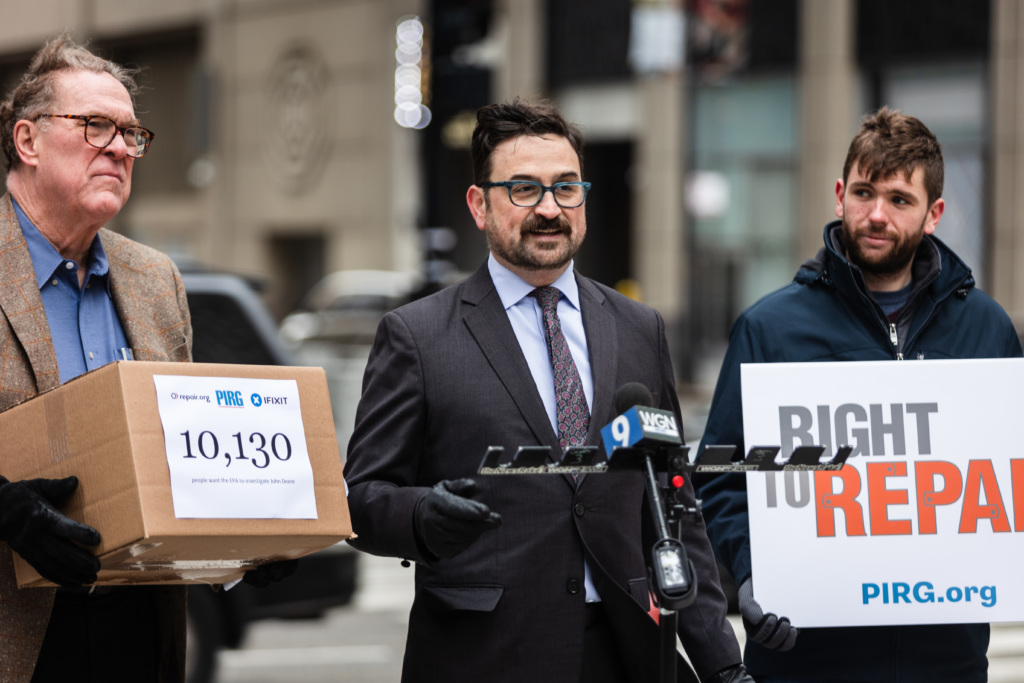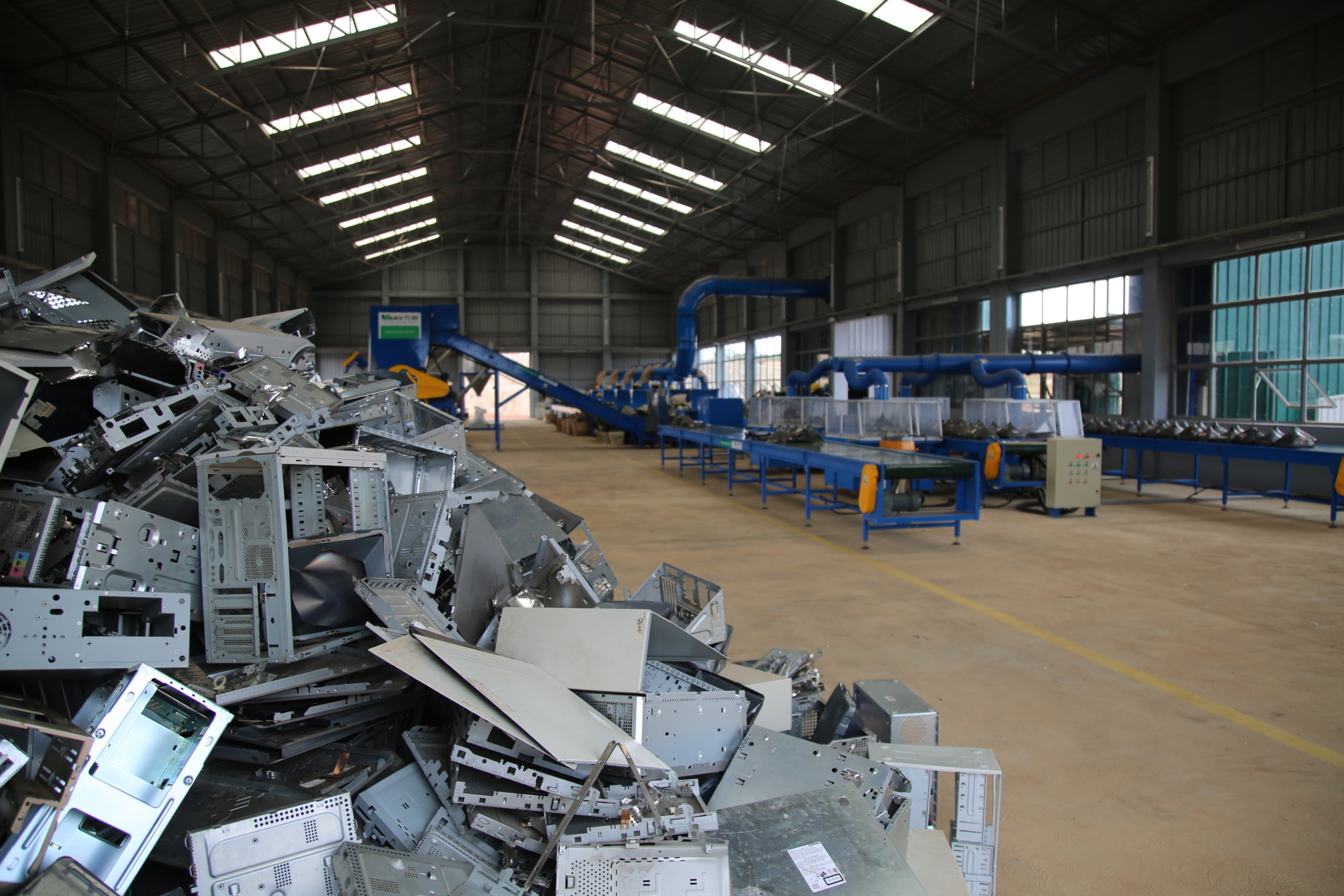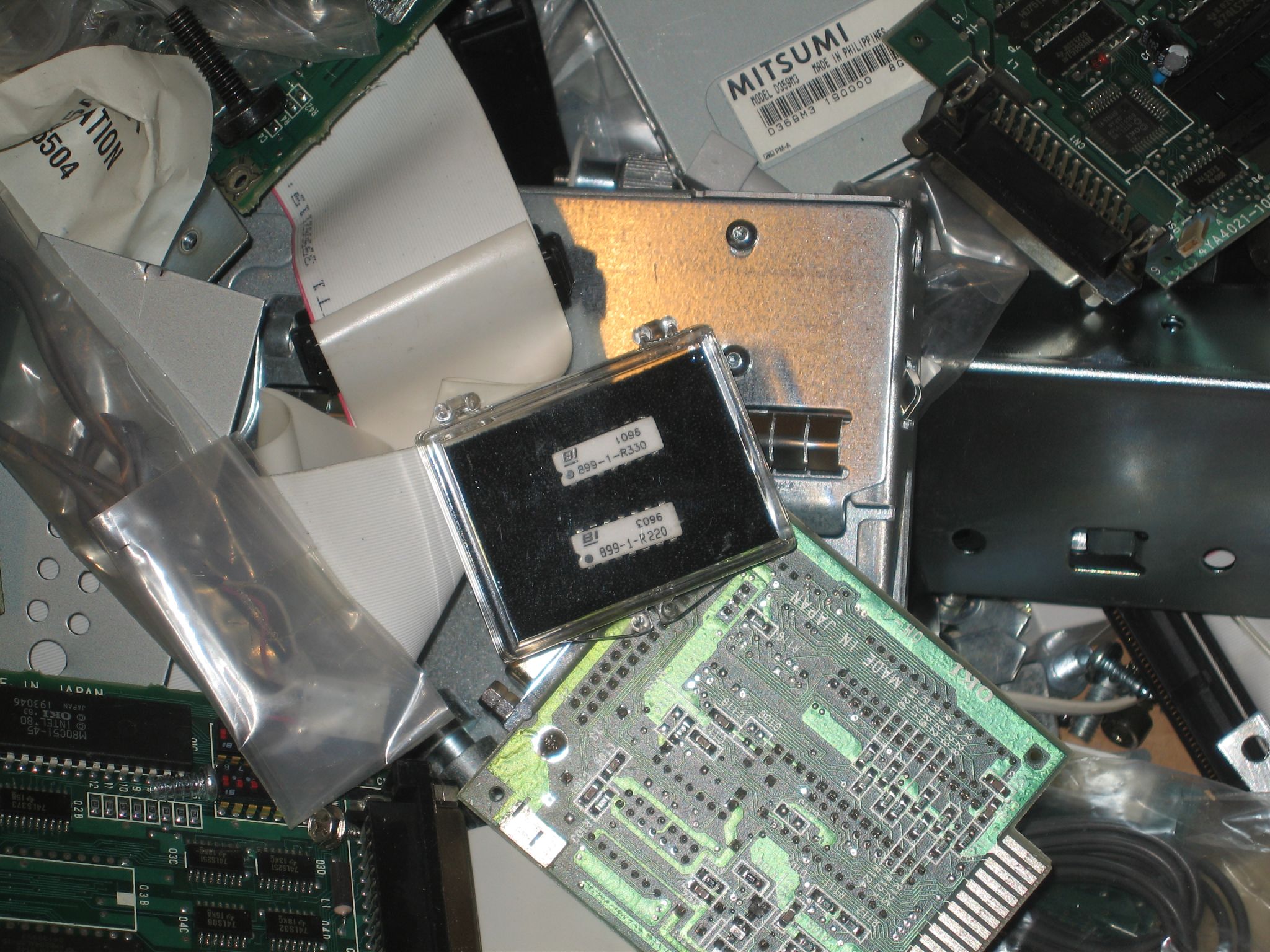
The EPA finally refutes John Deere, dealership arguments against Right to Repair
Repair opponents wrongly claimed Right to Repair undermines emissions compliance

On August 4, after prodding for more than a year by PIRG and our allies, the U.S. Environmental Protection Agency (EPA) sent an on-the-record letter to the National Farmers Union in support of Right to Repair. The letter clearly refutes manufacturers’ and dealers’ accusations that repair access facilitates emissions tampering and therefore violates environmental laws.
The letter states that “nothing in the Clean Air Act (CAA) or the EPA’s regulations limits a manufacturer’s ability to provide service tools and information to consumers and independent repair facilities for the purpose of repairing their equipment.”
Not only is the CAA not contrary to Right to Repair rules, but also it was written to protect repair competition. Citing a part of the CAA, the letter says: “Specifically, Section 207(c)(3) prohibits service instructions from including: ‘any condition on the ultimate purchaser’s using, in connection with such vehicle or engine, any component or service … which is identified by brand, trade, or corporate name …’”
“We’ve long been frustrated by how our environmental laws have been twisted to defend damaging repair restrictions,” said Nathan Proctor, senior Right to Repair campaign director for PIRG. “This letter is a relief and was a long time coming.”
Wide-ranging campaign forces response
One year ago, PIRG and Repair.org called on the EPA to investigate John Deere and its dealerships over their failure to support repairs outside of Deere’s authorized service centers. Then, in December, we delivered more than 10,000 petitions to the EPA field office in Illinois in support of that request.
In January, repair advocate Willie Cade filed a lawsuit, supported by the National Farmers Union, to compel the EPA to use the Clean Air Act in support of the Right to Repair for farm equipment.

Repair advocate Willie Cade (left) and PIRG’s Abe Scarr deliver petitions calling on the EPA to address Deere’s claims regarding Right to Repair. Photo by Michael Lim | TPIN
How Deere and others used EPA as a shield against repair legislation
For years, Deere and other industry opponents to Right to Repair have argued that environmental regulations prevent them from sharing repair materials with farmers. For example, in a Nebraska state legislative hearing, Grant Suhre, John Deere’s manager of customer support for the U.S. and Canada, said the reason the company can’t share certain repair tools is, “We’re required as a manufacturer to protect the emissions controls.”
Suhre went on to imply Deere was required to police its customers and ensure compliance, asserting the company is “liable to the EPA under the Clean Air Act to ensure that the emissions controls remain functional and perform.” Speaking to the news outlet The Verge, John Deere Chief Technical Officer Jahmy Hindman responded to a question about the Right to Repair by saying “We are required, because it’s a regulated emissions environment, to make sure that diesel engine performs at a certain emission output, nitrous oxide, particulate matter, etc., and so on.”
The implication of these arguments is that tractor manufacturers are required to ensure that all future use of their products, and all repairs of those products, meet environmental standards. In other words, Deere suggests that it and other manufacturers are deputized by the EPA to enforce emissions compliance by farmers and other product users. The EPA letter clarifies that they protect against air pollution not by limiting repair access, but by stopping tampering (which is their job, not the manufacturers):
“The act provides authority to enforce against tampering regardless of whether it is done by the manufacturer, the end user or another party. The act, implementing regulations and the EPA’s policy and practice are aligned in preventing tampering not by limiting access to independent repair, but rather by enforcing the prohibition against tampering against any party that does so.”
EPA expresses support for Right to Repair
The EPA closes its letter by not only rebutting the alleged anti-repair stance but expressing the opposite: Calling for legislation to protect repair.
“…the EPA believes barriers to the proper repair and maintenance of nonroad equipment is harmful to the environment. We support efforts by anyone to enact legislation clarifying that independent repair is allowable, provided such efforts continue to clearly prohibit illegal tampering of emissions control systems.”
Topics
Authors
Nathan Proctor
Senior Director, Campaign for the Right to Repair, PIRG
Nathan leads U.S. PIRG’s Right to Repair campaign, working to pass legislation that will prevent companies from blocking consumers’ ability to fix their own electronics. Nathan lives in Arlington, Massachusetts, with his wife and two children.
Find Out More

Why Microsoft extended Windows 10 support for schools for $1

Unsubscribe: Refusing to pay to use what we own

30 states considering Right to Repair so far in 2024

